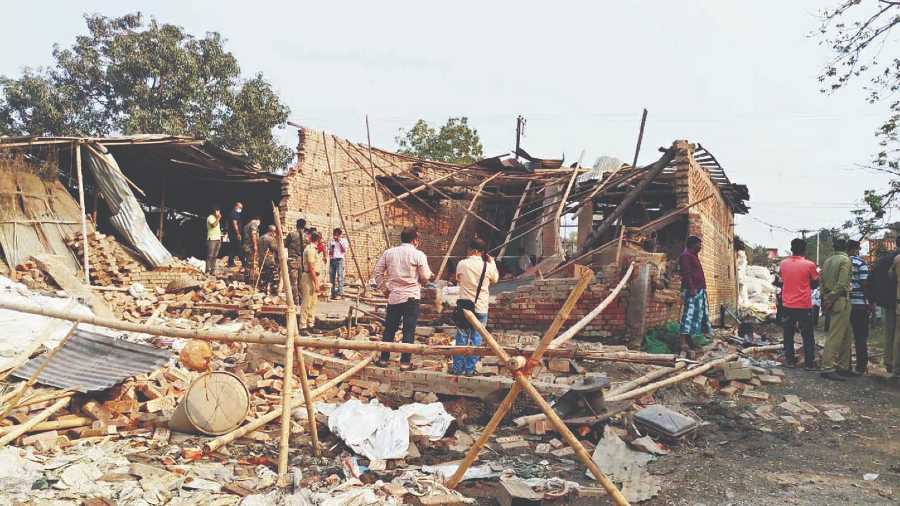Child labour is rampant at many of plastic crushing units that mushroomed at Sujapur near here in the past few years — a practice that came under lens following an explosion which killed six persons, including two minor boys, at one of such plants last week.
The state labour department decided to carry out surprise inspections at the plastic crushing units and take stern action if minors were found employed.
Abdur Rahman, who was 17 years old, was among the deceased in the blast that ripped through the unit on Thursday. He used to earn Rs 200 a day.
“My son worked there for four years. When he started working, he used to earn Rs 100 a day. Gradually, he started operating the machine (that crushes used plastic) and had a hike of another Rs 100,” said his mother Daloni Bibi.
Another deceased boy, Azizur Rahaman, 13, had also received measly wages, said his neighbours.
According to them, the daily wage of minor labourers ranges from Rs 80 to Rs 200.
“As they gain experience, the wage gradually increases. But for a minor, it is never more than Rs 200, despite working for eight to 10 hours a day,” said a Sujapur resident.
In total, there are around 100 such plastic crushing units in Sujapur, which engage over 1,500 minors, the residents said. Acute poverty forces the families to send minor boys to work in such hazardous conditions.
“One would be surprised to see that in this area, the number of girl students is more than boys. This is because the boys can make some earnings by working at these units and thus leave their studies to help families. Besides, girls get scholarships from the state government, which makes the parents to send them to schools,” said a teacher at Sujapur.
A 12-year-old boy, who lives near a plastic processing unit, admitted that he found it better to work at a factory. “It helps me make some money for my family. I have given up my studies,” said the boy.
The proprietors of the units, however, denied that minors were being employed.
“We do not entertain such illegal practices. But sometimes, children come to factories where their parents work. We have even opened a school for children of our workers. The school is, however, closed now because of the lockdown,” said Mofizul Sheikh, secretary, Plastic Prakiyakaran Byabsayee Samiti.
The deputy labour commissioner and the assistant labour commissioners posted in Malda have been asked to carry out inspections on a regular basis at the units.
“If any factory is found to have violated the child labour act, appropriate legal action would be initiated against the owner concerned,” said Mohammed Rizwan, an additional commissioner of state labour department in north Bengal.
Elected representatives of local bodies said they have not received any official complaint about the engagement of child labourers in these units.
“But we have become alert after the incident and will keep a strong vigil to ensure that no minor is employed at these units,” said Arif Ali, the head of Sujapur panchayat.











